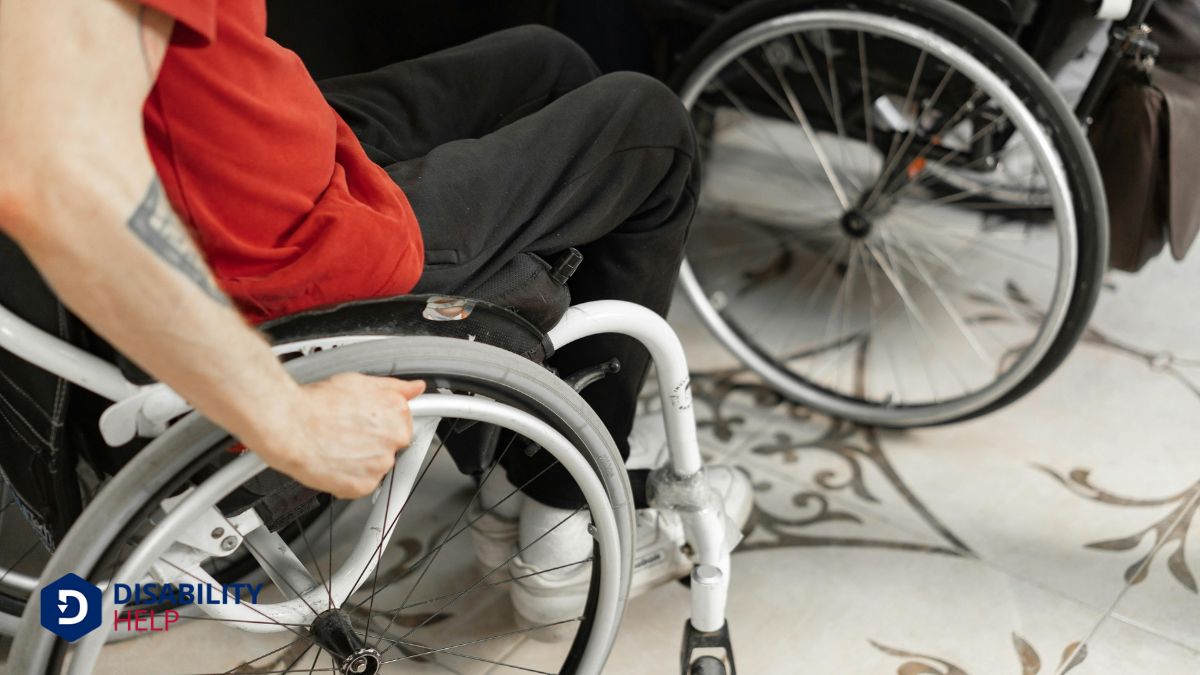To increase our VA disability rating, let's first examine our rating decision letter to understand current percentages and conditions. Comparing our health status with the VA's Schedule for Rating Disabilities may highlight potential increases. Gathering strong medical evidence is vital, so let's document any condition changes with updated records and specialist statements. Filing involves completing VA Form 21-526EZ with all supporting documents. Seeking assistance from VA disability attorneys can help us craft a persuasive case. Attending a Compensation and Pension exam honestly will further support our claim. Together, we'll make sure we navigate this process smoothly and uncover actionable strategies.
Key Takeaways
- Review your VA rating decision letter and compare it with the VA's Schedule for Rating Disabilities for discrepancies.
- Document any changes in your condition with updated medical records and evidence.
- File a request for an increase using VA Form 21-526EZ and submit supporting evidence.
- Schedule regular appointments with healthcare providers and obtain detailed medical statements.
- Consider consulting a VA disability attorney for assistance in gathering evidence and crafting persuasive arguments.
Understand VA Disability Ratings
Understanding VA disability ratings is vital for any veteran seeking to increase their benefits. These ratings determine the level of compensation we receive for service-connected disabilities. The Department of Veterans Affairs assigns these ratings as percentages, ranging from 0% to 100%, in increments of 10. They reflect the degree to which our conditions affect our ability to perform daily activities and maintain employment.
To navigate this system, we must first grasp how the VA evaluates disabilities. They use a schedule of ratings that outlines specific criteria for different conditions, considering both the severity and the impact on our earning capacity. Each percentage increase can make a significant difference in our monthly compensation, so understanding how these ratings work is vital.
Moreover, we should be aware that multiple disabilities are combined using a specific formula—not simply added together. This can affect our overall rating and, consequently, the benefits we receive. By educating ourselves on these principles, we're better equipped to identify potential increases in our ratings.
When we thoroughly understand this system, we can effectively gather the necessary evidence and present a compelling case for reevaluation. Let's empower ourselves with knowledge to maximize the benefits we've earned through our service.
Assess Your Current Rating

After gaining a solid grasp of how VA disability ratings work, it's time to assess our current rating to determine if an increase is possible. Let's start by reviewing the rating decision letter we received from the VA, which outlines the specific conditions we've been rated for, along with their corresponding percentages. This document helps us understand why our current rating is at its present level.
Next, it's vital to compare our current health status with the criteria in the VA's Schedule for Rating Disabilities. This schedule details how the VA assigns ratings based on the severity of different conditions. By examining these criteria, we can identify any discrepancies between our current symptoms and the rating percentage we've been awarded.
We should also consider any changes in our condition since the initial rating. Have symptoms worsened, or have new symptoms emerged? Documenting these changes with updated medical records or new medical evaluations can provide evidence for a potential rating increase.
Identify Qualifying Conditions
Let's explore the conditions that can qualify us for an increased VA disability rating.
We'll look into common service-connected injuries and the mental health conditions that the VA recognizes.
Additionally, we'll cover how secondary conditions can also be eligible for consideration.
Common Service-Connected Injuries
Service-connected injuries are the cornerstone for determining VA disability ratings, as they directly impact a veteran's eligibility for compensation. When we identify these injuries, we're looking at conditions directly related to military service. Understanding common injuries can help us better navigate the VA disability system.
Let's start with hearing lossPartial or total inability to hear sounds in one or both ears. and tinnitusThe perception of noise or ringing in the ears, often without an external sound source., which are frequently reported among veterans. Exposure to loud noises during service often leads to these conditions.
Another common injury is musculoskeletal issues, including back and joint problems. These can result from the physical demands of military duties or injuries sustained during service.
Additionally, respiratory conditions are prevalent, especially for those exposed to hazardous environments. Conditions like asthma or chronic obstructive pulmonary disease (COPD) aren't uncommon.
We should also consider traumatic brain injuries (TBIs), which result from head injuries during service and can have long-term effects.
Cardiovascular conditions, particularly hypertension, often emerge due to the stress of military service.
Lastly, consider skin conditions, including rashes or infections linked to environmental exposure during deployment.
Mental Health Conditions Recognized
When it comes to mental health conditions recognized by the VA for disability ratings, our focus should be on conditions that often stem from the unique stresses of military service. Grasping these conditions is essential for those seeking to increase their disability rating. The VA acknowledges several mental health issues that can be service-connected, impacting daily life and wellbeing.
First, Post-Traumatic Stress Disorder (PTSD)A mental health condition triggered by experiencing or witnessing a traumatic event. is a common condition resulting from exposure to traumatic events during service. This can manifest in flashbacks, nightmares, and severe anxiety.
Second, Major Depressive Disorder can develop due to challenging experiences faced while serving, affecting mood and interest in activities.
Third, Anxiety Disorders, including generalized anxiety and panic disorders, are recognized. They often arise from high-stress environments and can cause excessive worry and fear.
Finally, Traumatic Brain Injury (TBI)A form of acquired brain injury caused by a sudden trauma to the head, leading to various cognitive,... related mental health issues are also considered. These can lead to cognitive impairments and mood disturbances.
Consider these conditions if you're aiming to adjust your VA rating:
- Post-Traumatic Stress Disorder (PTSD)
- Major Depressive Disorder
- Anxiety Disorders
- Traumatic Brain Injury (TBI) related mental health issues
Let's make sure we comprehend which conditions qualify so we can effectively navigate the VA system.
Secondary Conditions Eligibility

Understanding secondary issues is vital for veterans aiming to increase their VA disability ratings. When we discuss secondary circumstances, we're referring to health problems that arise as a result of a service-connected disability. It's crucial to pinpoint these issues because they can significantly impact our overall well-being and the benefits we receive.
To determine if a condition qualifies as secondary, we should first establish a clear link between the primary service-connected disability and the new condition. For instance, if a veteran has a service-connected knee injury that leads to a hip problem due to altered gait, the hip issue might be considered a secondary concern.
We must provide medical evidence that shows this connection. This could include medical records, physician statements, or expert opinions. The stronger the evidence, the better our chances of having the secondary issue recognized by the VA.
It's also important to keep detailed records of our symptoms and treatments over time. By doing so, we can present a thorough case that outlines how the secondary issue affects our daily lives. Ultimately, understanding and identifying these issues will help guarantee we receive the benefits we're entitled to.
Gather Medical Evidence
Collecting strong medical proof is crucial when seeking an increase in your VA disability rating. We need to make sure that the proof we gather clearly demonstrates how our condition has worsened or how it affects our daily lives. Medical records are a powerful tool in telling our story to the VA, offering an objective glimpse into our health journey. Let's focus on gathering thorough evidence from various sources.
First, we should:
- Schedule regular appointments with our healthcare providers to document changes in our condition.
- Request detailed medical records that include treatment notes, test results, and diagnoses.
- Obtain statements from specialists who can provide insight into the severity and impact of our condition.
- Keep a personal health journal to track symptoms, limitations, and how they affect daily activities.
Obtain Supporting Documents
To increase our VA disability rating, we must gather extensive medical evidence by compiling all pertinent medical records and documentation.
It's also essential that we secure expert opinions from healthcare providers who understand our conditions and can offer detailed assessments.
Together, these supporting documents will strengthen our claim and improve our chances of a favorable outcome.
Gather Medical Evidence
When seeking an increase in our VA disability rating, gathering medical evidence is an important step that can greatly impact the outcome of our claim. By collecting thorough and accurate documentation, we provide a solid foundation that supports our case. Here's what we can focus on:
- Current Medical Records: Make sure we've the latest records from our healthcare providers. These documents show the ongoing nature and severity of our condition.
- Treatment History: Compile a detailed history of all treatments and therapies we've undergone. This helps demonstrate our commitment to managing our disability.
- Symptom Journals: Keeping a personal record of our daily symptoms can offer valuable insights into how our condition affects our lives. It paints a vivid picture of our challenges.
- Military Service Records: These documents link our condition to our service, which is vital in establishing a service connection for our claim.
We should review our medical files meticulously to ensure thoroughness and accuracy. It's crucial to present our situation clearly to the VA. By doing so, we strengthen our case, increasing the likelihood of receiving the disability rating we deserve. Let's be proactive and organized in this critical phase.
Secure Expert Opinions

While we've gathered extensive medical evidence, another important step is securing expert opinions that strengthen our VA disability claim. Expert opinions can provide valuable insight into the severity and impact of our condition. By consulting with medical specialists or professionals with relevant expertise, we add a layer of credibility that can support our case to the VA.
Let's consider who might offer the best expert opinions. Specialists who've treated us or have deep knowledge of our condition can write detailed assessments. Their opinions should clearly articulate how our disability affects our daily functioning and, significantly, connect it to our military service. A well-crafted expert opinion can help bridge any gaps in our medical records, making our claims stronger.
When we're obtaining these expert opinions, let's make sure they're thorough. The documents should include detailed observations, test results, and any recommended treatments. It's essential that these opinions directly address the criteria set by the VA for our specific condition. By taking this step, we empower our claim with authoritative voices, increasing the likelihood of receiving a favorable rating decision.
File a Request for Increase
For veterans seeking an adjustment to their VA disability rating, filing a request for an increase is an essential step. This process allows us to present our case to the VA, showing that our condition has worsened or that our current rating doesn't accurately reflect our level of disability. The goal is to make sure our rating aligns with the current state of our health, but how do we effectively file this request?
First, we need to gather significant evidence supporting our claim. This can include medical records, doctor's statements, and any other documentation that demonstrates the deterioration of our condition.
Once we've our evidence ready, we should proceed with the following steps:
- Complete VA Form 21-526EZ: This is the form used for filing a claim for an increase.
- Submit supporting evidence: Attach all relevant medical documents and expert opinions.
- Mail or submit online: Choose the method that's most convenient for us.
- Await a response: After submission, the VA will review our request.
Utilize VA Disability Attorneys
Traversing the process of filing a request for an increase in our VA disability rating can be challenging, but we're not alone in this journey. VA disability attorneys are valuable allies who specialize in guiding this complicated system. They understand the paperwork, deadlines, and legal language that often confuse us. With their expertise, we can build a stronger case to support our request for a higher rating.
These attorneys can assist us in gathering the necessary medical evidence and crafting a persuasive argument. They know what the VA looks for and can help us present our situation in the best light. By having someone knowledgeable on our side, we reduce the likelihood of making errors that could delay or harm our case.
Moreover, VA disability attorneys often work on a contingency basis, meaning they only get paid if we win our appeal. This arrangement ensures they're motivated to work diligently on our behalf. While we can pursue an increase on our own, having a skilled attorney improves our chances of success, securing we receive the benefits we rightfully deserve. Let's consider seeking their support to navigate this complex process effectively.
Attend the Compensation and Pension Exam
Our journey towards increasing our VA disability rating often involves attending a Compensation and Pension (C&P) exam. This exam is a pivotal step in the process, as it directly impacts the VA's decision regarding our disability rating. During the C&P exam, a VA healthcare provider will evaluate our condition to determine the severity and its connection to our military service. Being well-prepared for this exam can make a significant difference.
Here are some key points to keep in mind:
- Honesty is essential: Be truthful about our symptoms and how they affect our daily life. Exaggerating or downplaying symptoms can lead to inaccurate evaluations.
- Bring necessary documentation: Having our medical records, previous diagnoses, and any relevant paperwork guarantees the examiner has complete information.
- Discuss all symptoms: Even those that seem minor. They could be crucial in the overall assessment of our condition.
- Stay calm and focused: It's normal to feel anxious, but staying composed will help us communicate more clearly.
Appeal a Denied Claim

When we face a denied VA disability claim, it's essential to act promptly by understanding appeal deadlines.
We should gather all supporting evidence to strengthen our case and increase our chances of success.
Consulting with legal assistance can provide us with the guidance needed to navigate this complex process effectively.
Understand Appeal Deadlines
Mastering the complexities of VA disability appeals requires a sharp understanding of significant deadlines. When a claim is denied, grasping these timelines helps us effectively navigate the appeal process. The VA sets specific timeframes for each step, and missing them can impact our ability to challenge a decision. Being aware of these timelines is essential to successfully increasing our disability rating.
Consider these key deadlines:
- Notice of Disagreement (NOD): We've one year from the date of the decision letter to file an NOD. This is our chance to formally disagree with the VA's decision.
- Supplemental Claim: If new and relevant evidence emerges, we can submit this within one year of the decision to have the VA review the claim again.
- Higher-Level Review: This option also has a one-year deadline from the decision date, allowing us to request a senior VA reviewer to reassess the case.
- Board Appeal: We've 60 days to request this after receiving a Statement of the Case if we want the Board of Veterans' Appeals to evaluate our evidence.
Gather Supporting Evidence
Deadlines are important, but gathering supporting evidence is equally essential in strengthening our VA disability appeal. We need to focus on collecting documents and records that clearly demonstrate the severity and impact of our condition.
Start with medical records from VA hospitals and private healthcare providers. These records should detail diagnoses, treatments, and any ongoing symptoms related to our disability.
Next, let's think about gathering statements from family, friends, or coworkers who witness the daily challenges we face. Their firsthand accounts can provide powerful insights into how our condition affects our life. Additionally, obtaining a statement from our treating physician that explains the medical connection between our service and the disability can significantly enhance our case.
We should also review any previous VA decisions to identify any missing or incomplete information. Filling these gaps with relevant evidence can make a difference in our appeal outcome.
Don't forget to include any new diagnoses or worsening conditions since the last VA decision.
Consult Legal Assistance

Understanding the complexities of a VA disability appeal can be overwhelming, but consulting legal assistance can be a game changer in our pursuit of a higher rating. Maneuvering the appeal process requires knowledge of VA regulations and the ability to present our case effectively. A legal professional specializing in VA claims can be invaluable in this journey. They can help us understand the nuances of our denial and prepare a compelling appeal.
When we reach out for legal help, we should keep in mind:
- Expertise: Attorneys and accredited representatives understand VA laws and regulations deeply, ensuring our appeal is on solid ground.
- Objectivity: They provide an unbiased assessment of our case, highlighting strengths and addressing weaknesses.
- Documentation: They assist in gathering additional evidence and crafting a well-structured argument for a higher rating.
- RepresentationThe way people with disabilities are depicted in media, culture, and politics, often influencing pub...: In case of a hearing, they can represent us, ensuring our voice is heard clearly and effectively.
Explore Additional Resources
When seeking to increase a VA disability rating, it's important to explore additional resources that can aid in understanding this often intricate process. We've a few options available that can make a significant difference.
One valuable resource is the Veterans Service Organizations (VSOs). They offer free assistance with filing claims and can guide us through the complexities of the VA system. Organizations like the American Legion, Disabled American Veterans, and Veterans of Foreign Wars have experienced representatives who can support us in our journey.
Another resource to ponder is online forums and communities dedicated to veterans. These platforms allow us to connect with fellow veterans who've faced similar challenges and can share their experiences and advice. Websites like HadIt.com and Reddit's r/Veterans can be particularly helpful.
Additionally, the VA's own resources shouldn't be overlooked. The VA website has a wealth of information regarding disability ratings, and the eBenefits portal offers tools to track our claim's progress and access needed documents.
Conclusion
Let's collaborate to enhance your VA disability rating. By comprehending the rating system and evaluating your current status, we can pinpoint qualifying conditions and gather the requisite medical evidence. It's essential to obtain supporting documents and consider utilizing VA disability attorneys for guidance. Don't overlook the significance of attending the Compensation and Pension Exam. If necessary, we can appeal a denied claim and explore additional resources to guarantee you receive the benefits you deserve.






